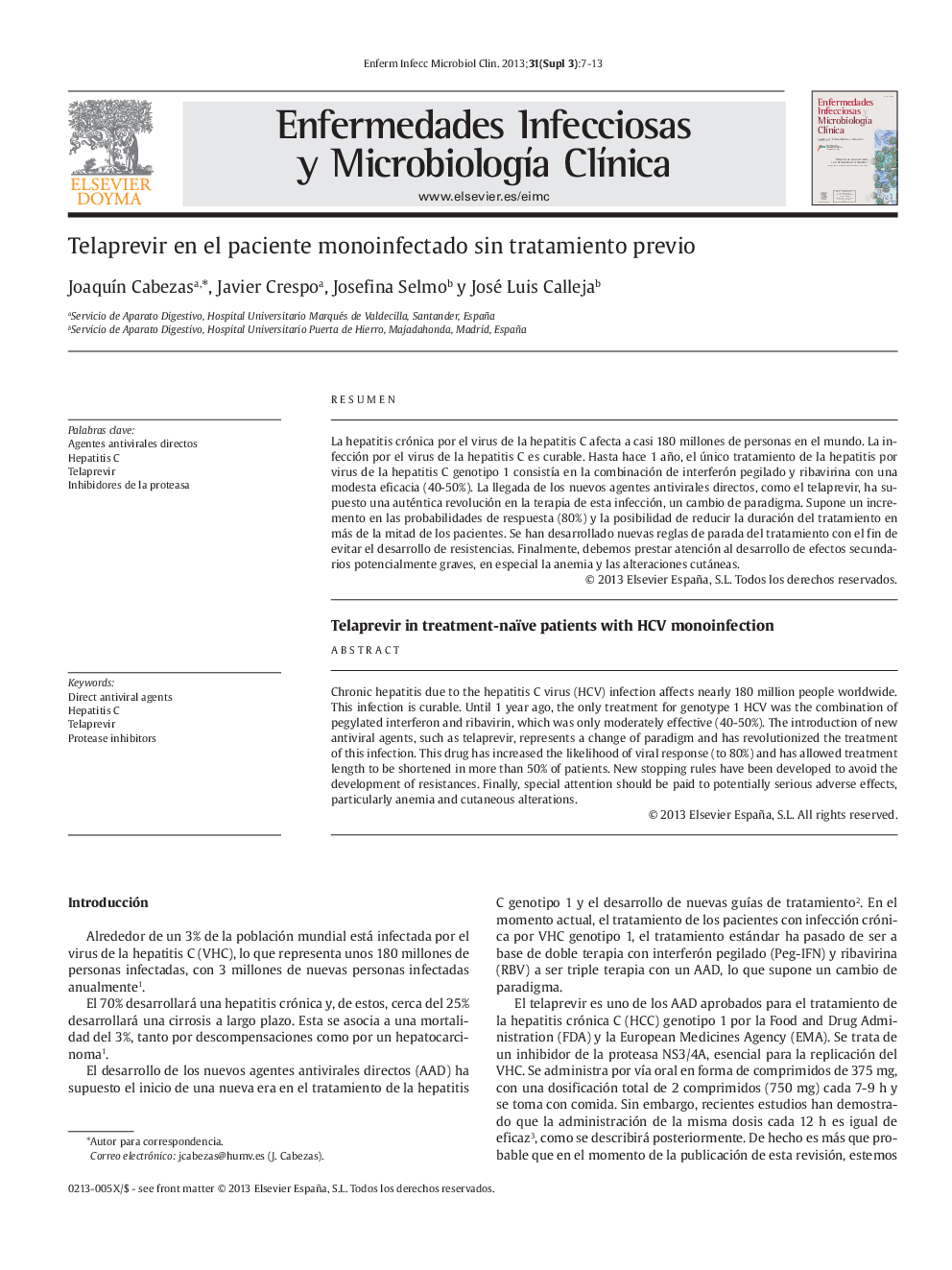| Article ID | Journal | Published Year | Pages | File Type |
|---|---|---|---|---|
| 3401181 | Enfermedades Infecciosas y Microbiología Clínica | 2013 | 7 Pages |
Abstract
Chronic hepatitis due to the hepatitis C virus (HCV) infection affects nearly 180 million people worldwide. This infection is curable. Until 1 year ago, the only treatment for genotype 1 HCV was the combination of pegylated interferon and ribavirin, which was only moderately effective (40-50%). The introduction of new antiviral agents, such as telaprevir, represents a change of paradigm and has revolutionized the treatment of this infection. This drug has increased the likelihood of viral response (to 80%) and has allowed treatment length to be shortened in more than 50% of patients. New stopping rules have been developed to avoid the development of resistances. Finally, special attention should be paid to potentially serious adverse effects, particularly anemia and cutaneous alterations.
Related Topics
Life Sciences
Immunology and Microbiology
Microbiology
Authors
JoaquÃn Cabezas, Javier Crespo, Josefina Selmo, José Luis Calleja,
